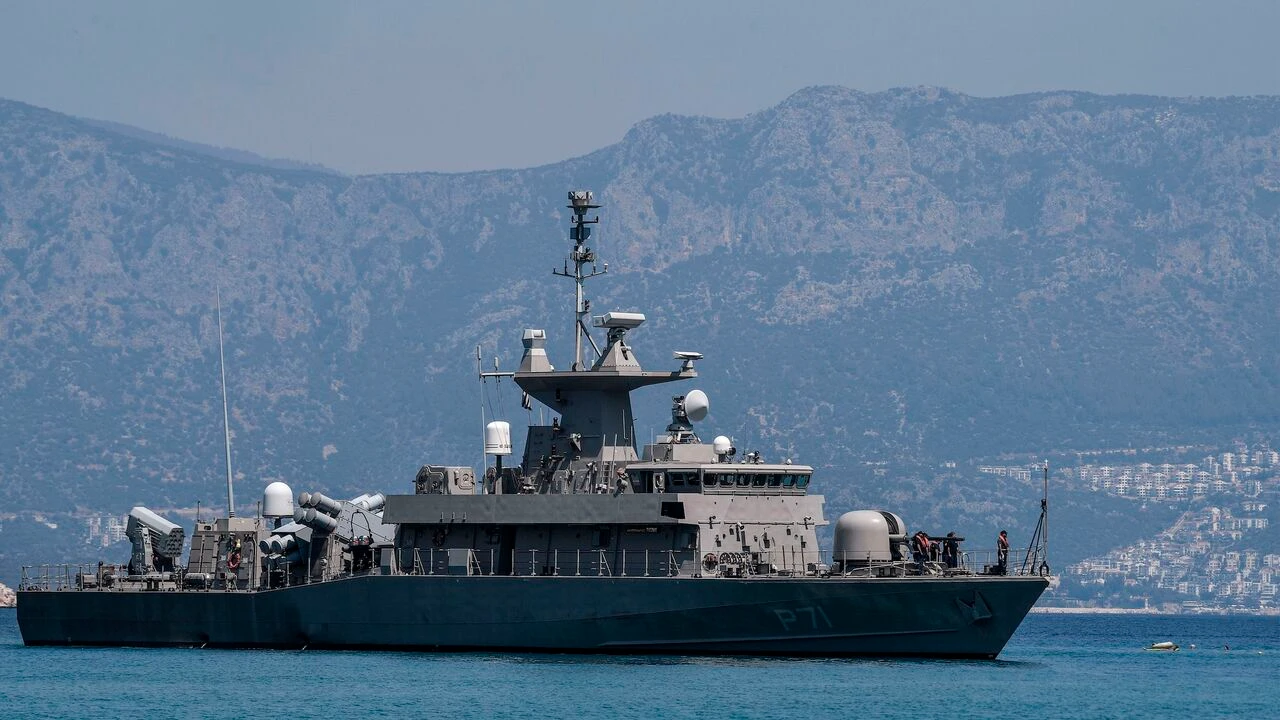Deconfliction talks with Israel not diplomatic: Deputy FM Yilmaz
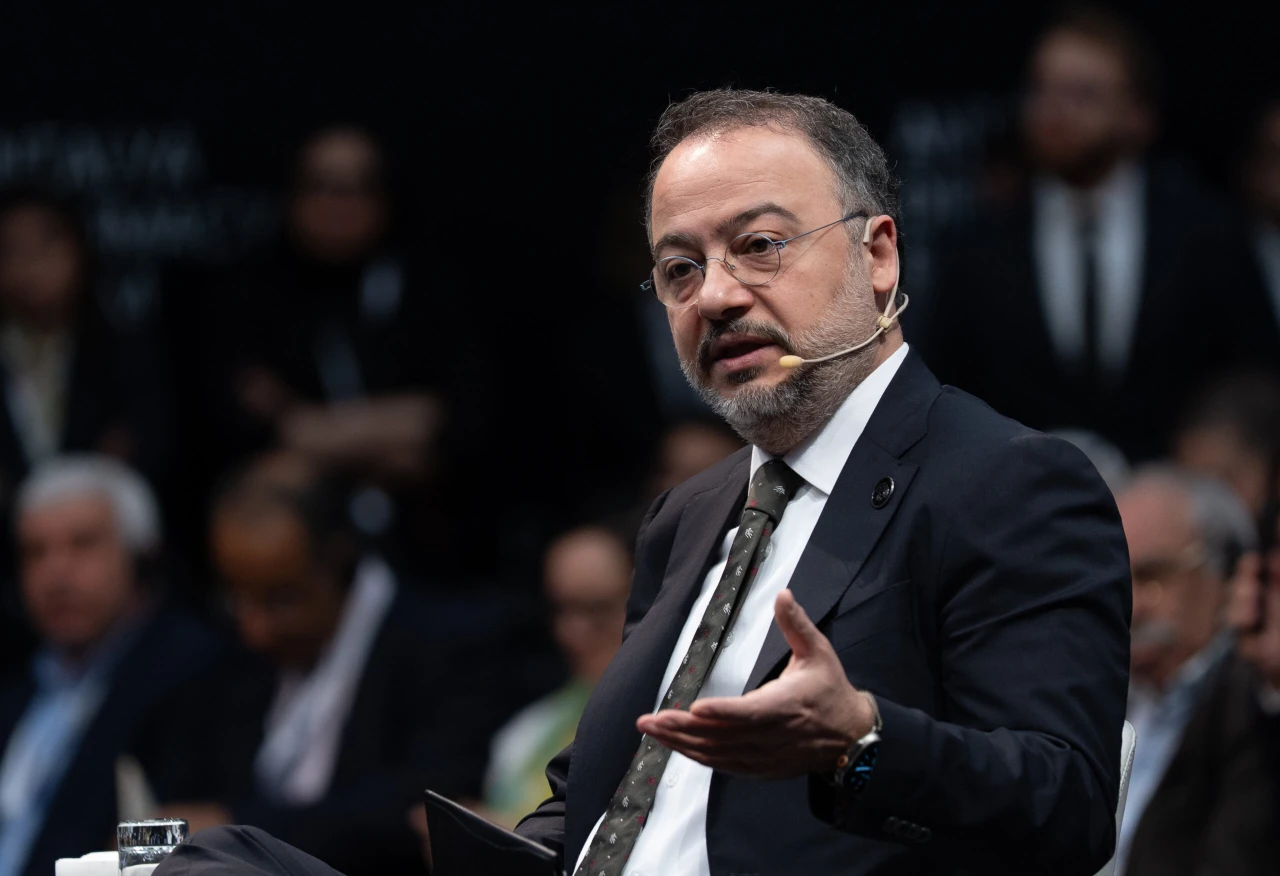 At the 4th Antalya Diplomacy Forum, Turkish Deputy Foreign Minister Nuh Yilmaz (pictured), Deputy Executive Director and Chief Operating Officer of the World Food Programme (WFP) Carl Skau, UN Special Envoy for Syria Geir O. Pedersen, and President of the UN Sustainable Development Solutions Network Jeffrey Sachs on 12 April, 2025. (AA Photo)
At the 4th Antalya Diplomacy Forum, Turkish Deputy Foreign Minister Nuh Yilmaz (pictured), Deputy Executive Director and Chief Operating Officer of the World Food Programme (WFP) Carl Skau, UN Special Envoy for Syria Geir O. Pedersen, and President of the UN Sustainable Development Solutions Network Jeffrey Sachs on 12 April, 2025. (AA Photo)
Turkish Deputy Foreign Minister Nuh Yilmaz Saturday clarified recent interactions with Israel, explaining that a meeting held in Azerbaijan was strictly technical and focused on deconfliction, not diplomacy.
Türkiye and United Nations officials issued strong warnings against Israel‘s continued military operations in Syria during the Antalya Diplomacy Forum 2025, calling them a major threat to an already fragile region.
In a panel titled “Syria: A Country Reconciling and Rebuilding,” participants emphasized that Israel’s airstrikes are undermining Syria’s sovereignty, disrupting regional stability, and potentially legitimizing further military presence through chaos.
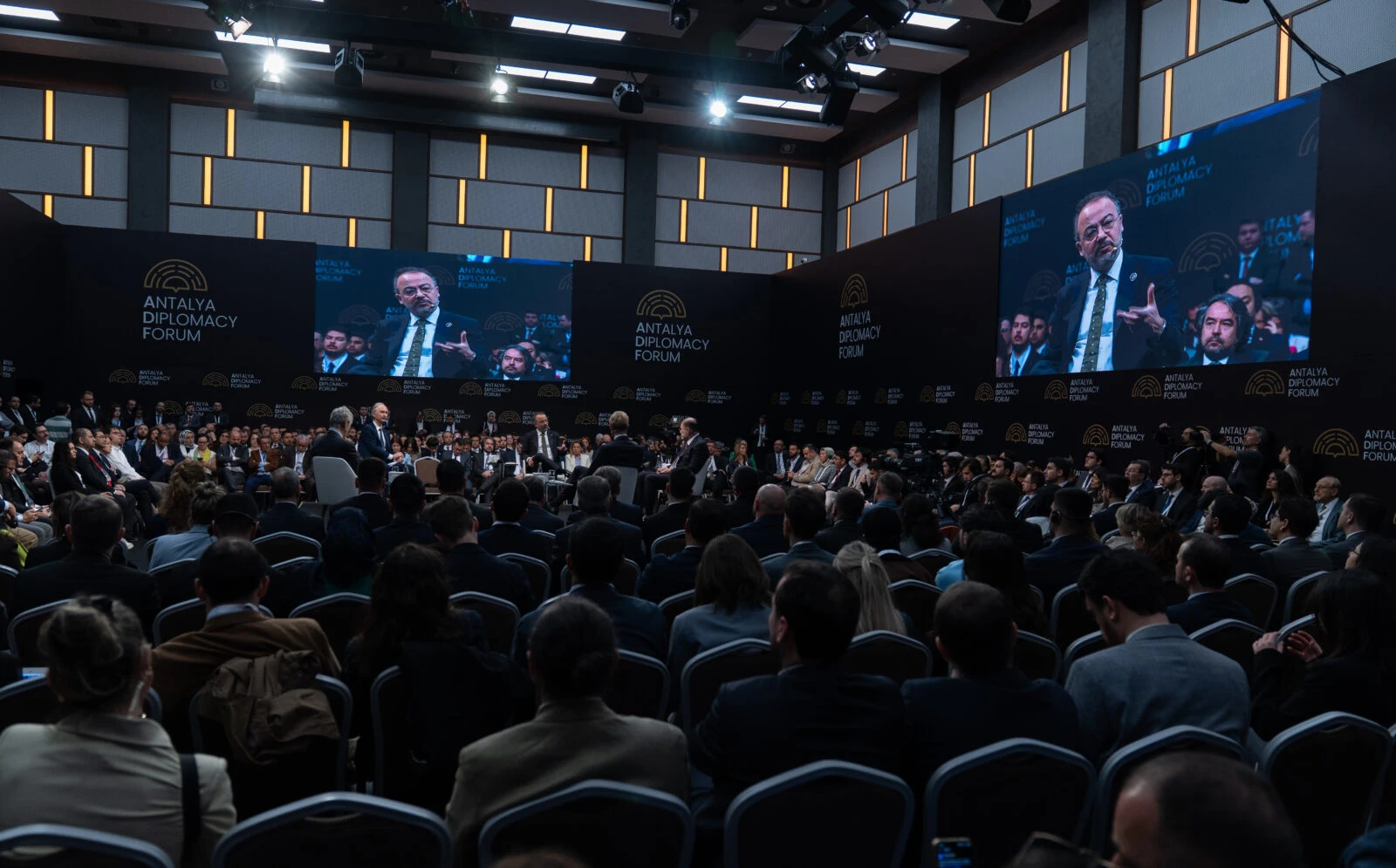
Mechanism preventing conflict
Deputy Foreign Minister Nuh Yilmaz addressed recent Türkiye-Israel contacts, clarifying, “It was not a meeting that took place between diplomats. This is a mechanism aimed at preventing conflict.
He explained that such deconfliction efforts are well known among military and security personnel: “When you use airspace, you need to be in communication with other actors using that airspace. We’ve done this before — with Russia in Syrian airspace and with the U.S. in Lebanon. When we evacuated our citizens from Lebanon, we also had deconfliction talks with Israel. This doesn’t mean it was a political or diplomatic meeting.”
“This is a good starting point because we are trying to prevent any conflict in Syrian airspace. Our minister also clearly said, In order to speak of better relations or normalization with Israel, we must see that the genocide in Gaza has stopped and that a ceasefire has been established. We need to see normalization at that level. Then we can talk about better relations with Israel.”
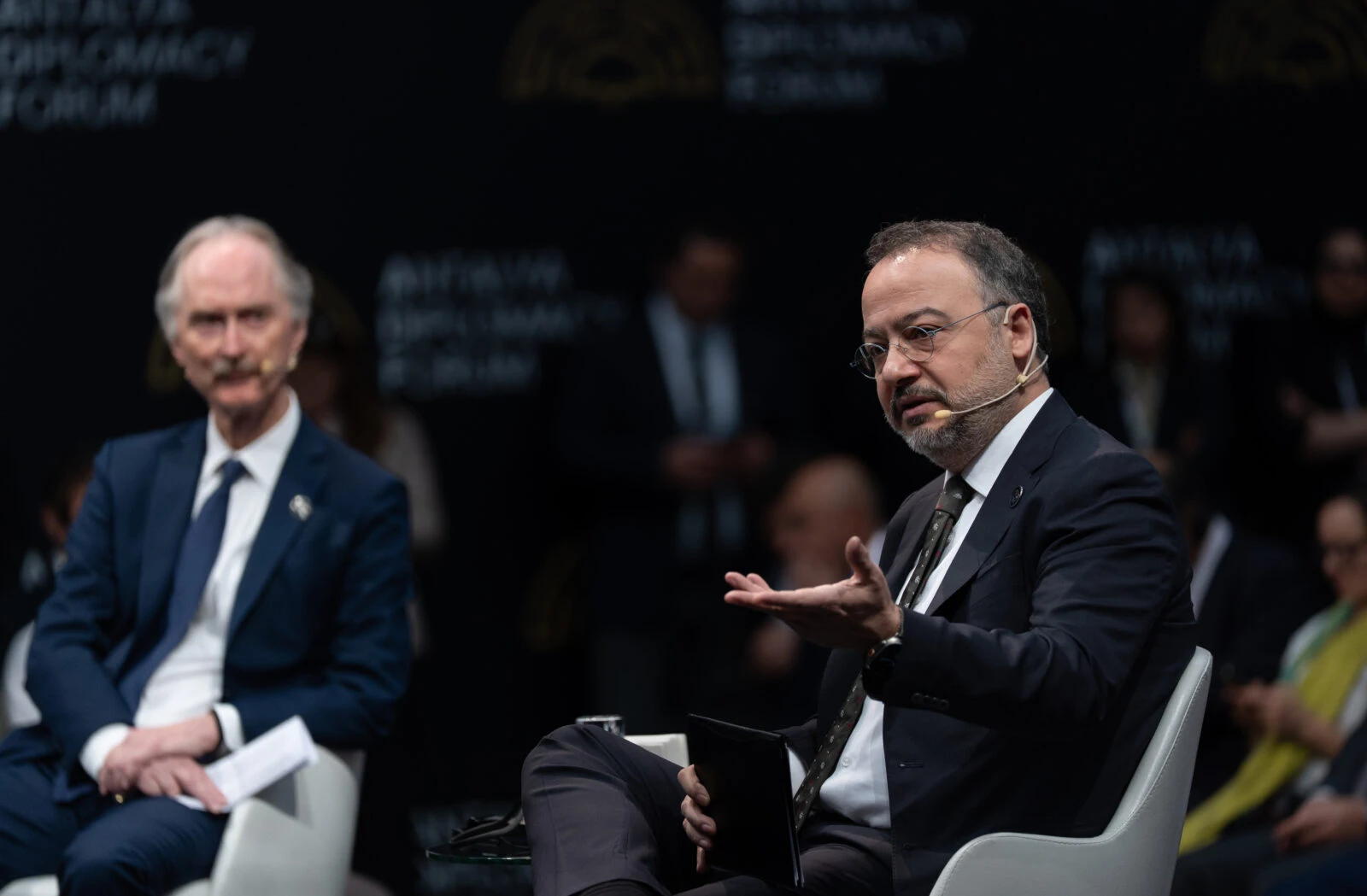
Israel accused of seeking legitimacy through chaos
Yilmaz also made pointed remarks about Israel’s actions in Syria, “Israel is trying to legitimize its presence in Syria by creating chaos. That’s why they are targeting security centers in the region.”
He warned of the potential for terrorist groups to exploit the instability: “Just like Daesh’s sleeper cells, terrorist elements in the region could become active again, allowing Israel to justify its presence retrospectively. This is the biggest threat to the Syrian administration.”

Türkiye, Iraq, Syria, Lebanon, and Jordan to launch Joint Operations Center
Highlighting the importance of regional cooperation, Yilmaz announced, “Türkiye, Iraq, Syria, Lebanon, and Jordan will come together to establish an operational center and work to resolve these security issues.”
He stressed Israel is acting as a “strategic destabilizer,” and “We are forced to communicate in the field to ensure security and prevent further escalation. That’s the purpose of the deconfliction mechanism.”
UN Envoy: ‘Israel is playing with fire’
UN Special Envoy for Syria Geir O. Pedersen warned and said, “Israel must stop what it is doing right now (in Syria); it is playing with fire. This further destabilizes an already fragile situation.”
Pedersen said peace depends on both internal reforms and international support: “If President Shara sets out his promises on lifting sanctions, continues the inclusive governance structure, and maintains functioning state institutions, then this could be achieved.”
“First, al-Sharaa and his government must fulfill their promises. This transition—from dictatorship to another system—has been seen worldwide. But successful transitions are very rare. The Syrian people must see that Shara is fulfilling his promises,” he emphasized.
Pedersen added that some developments along the Syrian coast could disrupt the peace process and highlighted, “The Constitutional Declaration is a positive step.”
“If sanctions are not lifted, we are heading toward catastrophe,” he warned.
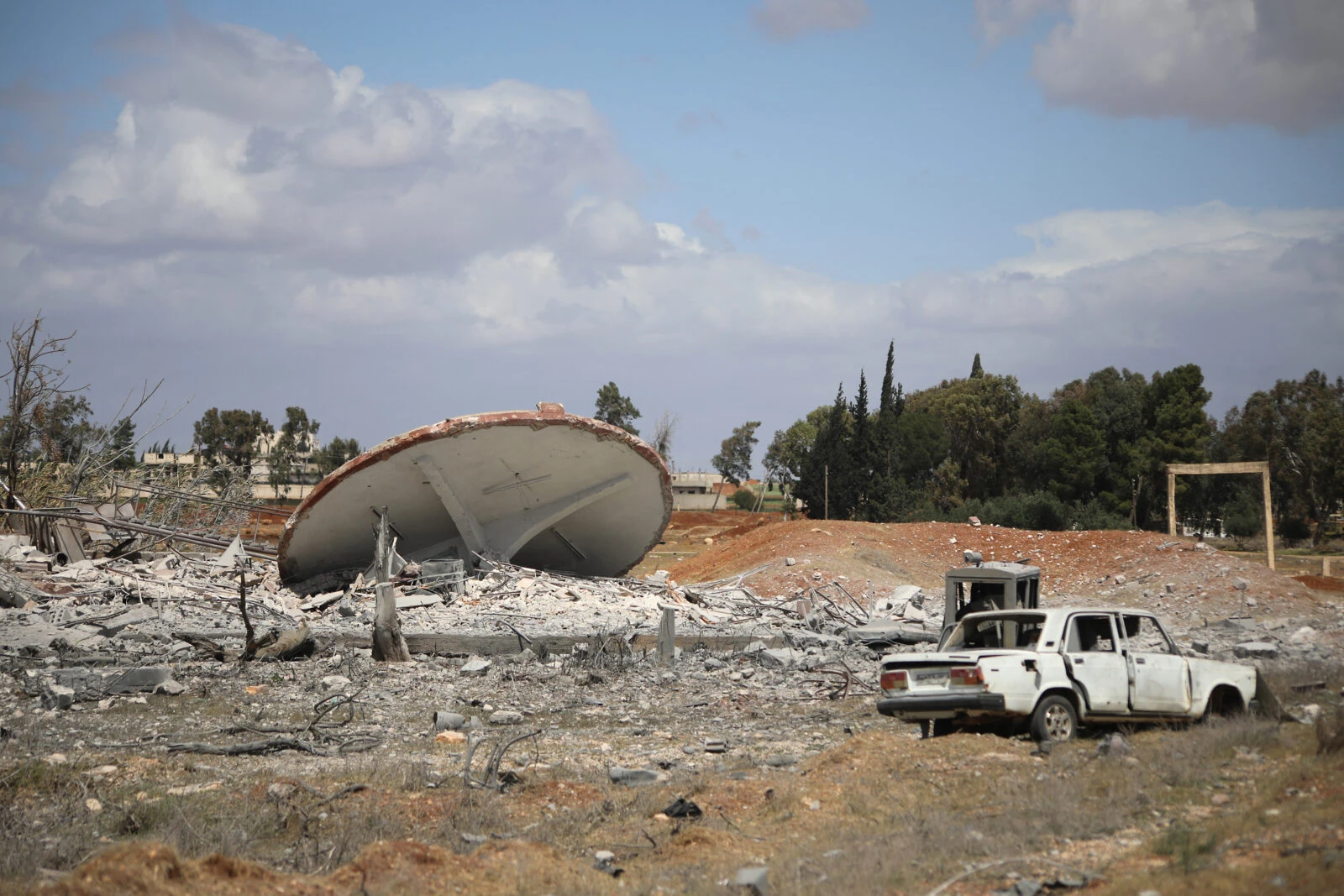
‘Humanitarian aid should be exempt from sanctions’
Pedersen stressed that sanctions should not affect humanitarian operations and said, “Sectors like energy, finance, and banking should be excluded from sanctions, and the Food Programme must not be affected.”
‘US and CIA preventing peace’
U.N. Sustainable Development Solutions Network President Jeffrey Sachs blamed U.S. policies and intelligence operations and said, “Unless real diplomacy is conducted in the region and CIA operations end, there will be no peace.”
“The U.S. government and its ally Israel are responsible for many of the crises and wars in the region. These actions are deliberate. Unless foreign actors withdraw, peace will not be achieved,” he stated.
“Without U.S. political, military, and financial support, Israel could not wage war or commit genocide in Gaza,” Sachs claimed.
“Past peace talks for Syria under U.N. oversight failed because the U.S. rejected them,” he added.
“If the U.S. recognizes Palestine as a state and stops supporting Israel, war in the region could end,” he concluded.
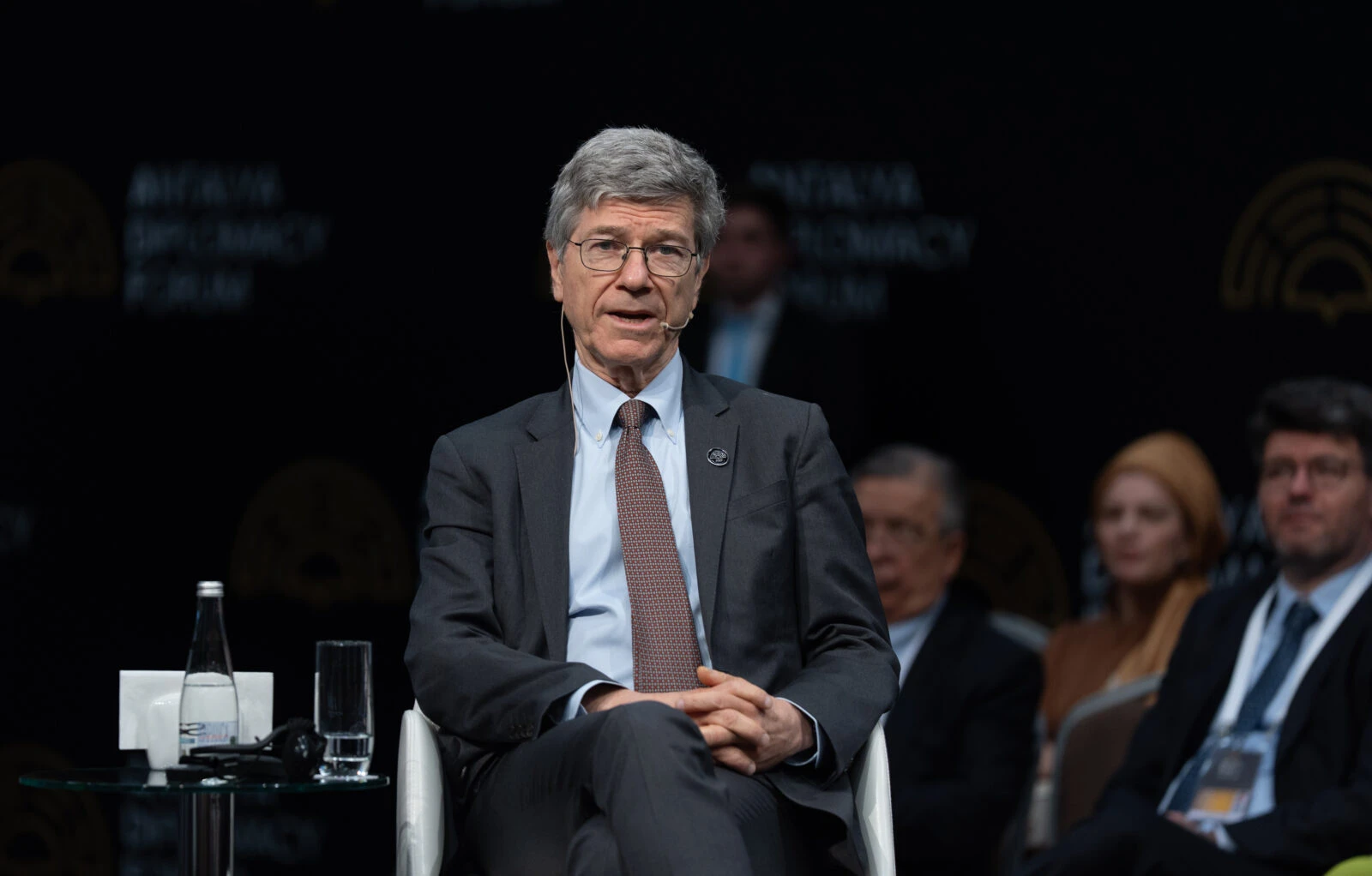
3M Syrians face food insecurity
Carl Skau, Deputy Executive Director of the U.N. World Food Programme, reported, “The WFP is present in many crisis zones, and aside from Syria, the situation is worsening everywhere. But there is a window of opportunity for progress in Syria.”
“During my visit, people told me the food situation has worsened over the last four months. While 3 million people face food insecurity in Syria, we can only support 1.5 million,” he noted.
“We have the capacity, but we are financially under-resourced. We want to invest in food, cash, and farmer support,” he concluded.

Regional Think Tank: Israeli strikes main threat
Ammar Kahf, president of the Omran Center for Strategic Studies, argued, “There’s now a new opportunity for regional stability and order. Sanctions are a major issue. Syria must no longer be an arena of competition, and reintegration must be deeper.”
“The biggest threat is Israel. This is not something the Syrian administration or any single actor can resolve. A new regional order must be discussed to stop these attacks,” he emphasized.



